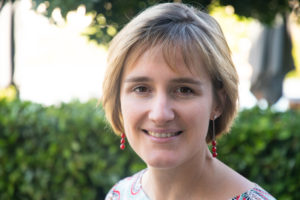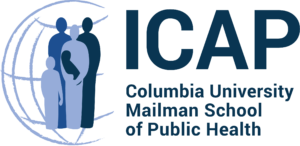In 2020, AFEW and ICAP at Columbia University will partner to implement «Technical Assistance to Central Asian National HIV Programs to Achieve and Sustain HIV Epidemic Control under the President’s Emergency Plan for AIDS Relief (PEPFAR)» in Kyrgyzstan and Tajikistan, a project funded by PEPFAR through the US Centers for Disease Control and Prevention (CDC). In Kyrgyzstan the project will be implemented by AFEW Kyrgyzstan; in Tajikistan, by NGO SPIN Plus with technical support of AFEW Kazakhstan.
With this project, the partners will strive to reach two important goals:
1) improving the 90-90-90 targets for people who inject drugs (PWID) and people living with HIV (PLHIV) in prisons in Kyrgyzstan and Tajikistan, using new technologies and services;
2) facilitating and improving collaboration between general public health care facilities and health care services within the penitentiary system, ensuring continuity of HIV-related services to people being released from prisons.
 ”AFEW International will be the lead agency working with its in-country AFEW partners and local partners to implement this project in Kyrgyzstan and Tajikistan,” said Daria Alekseeva, Program Director of AFEW International. “We have a proven track record and evidence that working as a regional EECA network has encouraged the exchange of context-specific approaches that help to find appropriate local solutions and models of best practice. We combine local Central Asian knowledge and expertise, exchanging this within the wider EECA region, as well as the added advantage of an international, Netherlands-based Secretariat, contributing to international expertise and innovation. AFEW International – together with AFEW Kyrgyzstan and AFEW Kazakhstan, which will provide technical support to activities in Tajikistan – will aggregate lessons learned from ICAP’s previous work in Kazakhstan and combine those lessons with the methodological approach gained through the past experience of working in prisons in Central Asia to produce practical guidelines and training modules. AFEW International will look for possibilities to pilot this model in Kyrgyzstan and Tajikistan, where political and technical conditions may allow.”
”AFEW International will be the lead agency working with its in-country AFEW partners and local partners to implement this project in Kyrgyzstan and Tajikistan,” said Daria Alekseeva, Program Director of AFEW International. “We have a proven track record and evidence that working as a regional EECA network has encouraged the exchange of context-specific approaches that help to find appropriate local solutions and models of best practice. We combine local Central Asian knowledge and expertise, exchanging this within the wider EECA region, as well as the added advantage of an international, Netherlands-based Secretariat, contributing to international expertise and innovation. AFEW International – together with AFEW Kyrgyzstan and AFEW Kazakhstan, which will provide technical support to activities in Tajikistan – will aggregate lessons learned from ICAP’s previous work in Kazakhstan and combine those lessons with the methodological approach gained through the past experience of working in prisons in Central Asia to produce practical guidelines and training modules. AFEW International will look for possibilities to pilot this model in Kyrgyzstan and Tajikistan, where political and technical conditions may allow.”
 “People living with HIV in prisons are less likely to be on antiretroviral therapy (ART) when compared to general population. They are also less likely to adhere to the prescribed treatment regimen and, therefore, are often viremic,” said Anna Deryabina, ICAP Regional Director for Central Asia. “Lower ART initiation and viral load suppression rates among prisoners are due to many factors, including structural factors, such as lack of trained health care personnel in prisons and limited adherence support and treatment monitoring. Also, lack of coordination between general and prison-based health care services and fragmented service delivery systems lead to many people living with HIV being lost to follow-up and discontinuing treatment after being released from prisons. ICAP has been very effective in improving the quality of HIV services provided to people living with HIV treatment facilities outside of prisons. We really hope that AFEW’s deep knowledge and understanding of subcultures and norms inside the prisons, as well as their experience working with the prison-based health care systems will allow this project to effectively improve the quality of services and HIV outcomes for people living with HIV in prisons.”
“People living with HIV in prisons are less likely to be on antiretroviral therapy (ART) when compared to general population. They are also less likely to adhere to the prescribed treatment regimen and, therefore, are often viremic,” said Anna Deryabina, ICAP Regional Director for Central Asia. “Lower ART initiation and viral load suppression rates among prisoners are due to many factors, including structural factors, such as lack of trained health care personnel in prisons and limited adherence support and treatment monitoring. Also, lack of coordination between general and prison-based health care services and fragmented service delivery systems lead to many people living with HIV being lost to follow-up and discontinuing treatment after being released from prisons. ICAP has been very effective in improving the quality of HIV services provided to people living with HIV treatment facilities outside of prisons. We really hope that AFEW’s deep knowledge and understanding of subcultures and norms inside the prisons, as well as their experience working with the prison-based health care systems will allow this project to effectively improve the quality of services and HIV outcomes for people living with HIV in prisons.”
 “AFEW-Kyrgyzstan is pleased to launch this joint project with ICAP. Under the Project, our organization will be responsible for the implementation of the component to achieve the 90-90-90 goal in the penitentiary system,” said Dina Masalimova, AFEW-Kyrgyzstan Programs Manager. “We plan to work in almost all large prisons in Chui Oblast. Our activities will be aimed at expanding HIV testing coverage with the provision of quality pre- and post-test peer counseling, motivation to start therapy, and adherence development. In addition, we will focus on ensuring that people do not stop their treatment even after release.”
“AFEW-Kyrgyzstan is pleased to launch this joint project with ICAP. Under the Project, our organization will be responsible for the implementation of the component to achieve the 90-90-90 goal in the penitentiary system,” said Dina Masalimova, AFEW-Kyrgyzstan Programs Manager. “We plan to work in almost all large prisons in Chui Oblast. Our activities will be aimed at expanding HIV testing coverage with the provision of quality pre- and post-test peer counseling, motivation to start therapy, and adherence development. In addition, we will focus on ensuring that people do not stop their treatment even after release.”
This project is very important to maintaining an effective response to the HIV infection in the country, as 5-10% of all PLHIV in the country are in the prison system. With the high turnover of the prison population, this number can be easily multiplied by half per year.
“We are happy to work in a team with such a highly professional organization as ICAP,” said Masalimova. “It is planned that ICAP specialists will be responsible for medical aspects of providing assistance to PLHIV, and our organization will take over the community element and peer-to-peer support.”
In Kyrgyzstan, AFEW-KG will recruit and train a team of peer navigators representing each layer of the prison sub-population (with a special focus on prison outcasts and pre-release prisoners) in order to identify those who practice risky behaviors and haven’t been tested for HIV in the past six months. AFEW-KG will work with newly identified PLHIV to motivate them to start antiretroviral therapy and take all of the necessary tests. The peer consultants will work as liaisons between patients and prison doctors to ensure that patients are prescribed ART, are adherent to treatment, and that relationships between prison doctors and patients are built on mutual trust.
In addition, AFEW-KG will provide a series of counseling sessions for at least 200 prisoners who are PWID on the benefits of starting methadone-assisted treatment (MAT) and dispelling the myths related to the therapy.
“We believe that this collaboration will yield excellent results and that by the end of 2020 we will be able to see tangible progress on each of the 90-90-90 goals in prisons,” said Masalimova.




